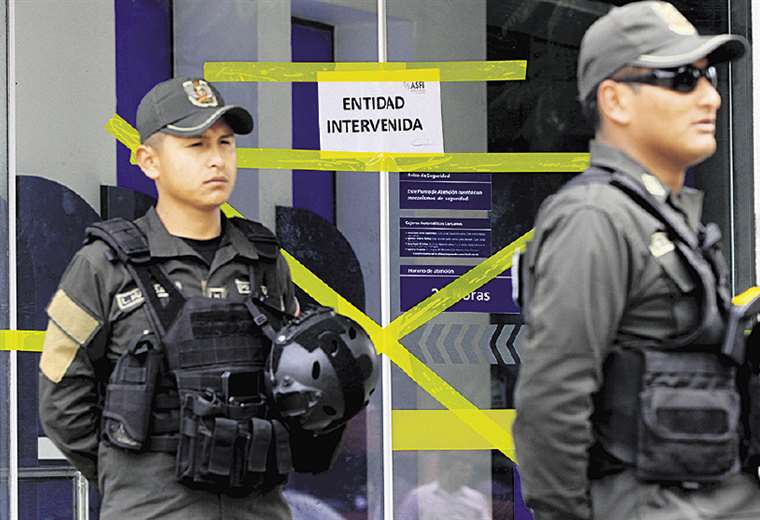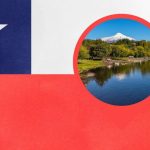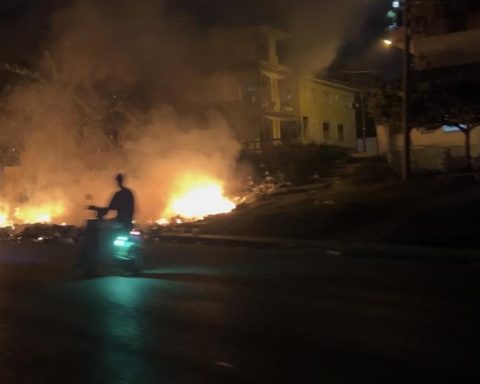May 14, 2023, 4:00 AM
May 14, 2023, 4:00 AM
Reynaldo Yujra, director of the Financial System Supervision Authority (ASFI), announced that deposits in dollars held by Banco Fassil savers will be returned in Bolivians as of May 22. This measure caused surprise among economic experts and they affirm that de-dollarization in this intervention process “is not the right path” and they call the decision taken by the financial system regulatory body “worrying.”
Yujra explained that, although Banco Fassil assumed “commitments in dollars” with savers, when the entity was intervened there were no investments in the US currency, therefore, there were not -he said- the necessary resources to make the return in that cut. foreign.
“Then, what corresponds, according to the law, is that these resources that were in dollars and, since there is an accompaniment of the saver protection fund, will be returned in national currency at the current exchange rate” , said Yujra, who announced that the possibility of the return being made at the sale exchange rate is being analyzed to minimize the damages to savers.
Yesterday, Yujra explained that the deposits in dollars that entered Banco Fassil will go to a trust that will be managed by a financial intermediary entity, therefore, to proceed with the return of these funds, he said that the law establishes that by the fact of who are participating in the Saver Protection Fund, must be converted into Bolivians at the official exchange rate.
“There are two exchange rates, one is for buying and selling, 6.86 and 6.96 (bolivianos), what will be done is to apply the sale exchange rate which is 6.96 (bolivianos) of so that the depositor cannot be very affected either”, affirmed Yujra.
This decision was criticized by former President Jorge Quiroga, who pointed out that the de-dollarization of savings at Banco Fassil reflects a “serious economic crisis in Bolivia” and added that this decision “smells” of the time of the Democratic and Popular Unity (UDP). ), crisis and shortages.
“(Luis) Arce: Are you going to de-dollarize all the deposits, in all the banks, that are in dollars? On February 8, it was $4.5 billion, ”wrote the former president on his Twitter account.
Meanwhile, the economist Jorge Dunn considered that the determination of the ASFI “is not the correct path” and said that the measure is “worrying” because the dollar accounts of the country’s savers must be guaranteed by the regulatory entity of the system country’s financial
“The issue of delivering Bolivians instead of US dollars is very complex. This is an issue where the agreements that savers had with the bank are being violated. The cessation of payments in dollars may be subject to intervention. The savers could denounce the ASFI because they do not return what they are demanding, in this case the dollars”, Dunn affirmed.
The expert added that it was good to see compliance with the deadlines established in the initial proposal made by ASFI, but he insisted with his concern regarding the delivery of bolivianos instead of dollars, although he recognized that the financial system is stable.
The return of the money that is in the coffers of Banco Fassil will be made through nine financial entities that were awarded the portfolio of the intervened entity, which are: Banco de Crédito de Bolivia, Banco Bisa, Banco Económico, Banco FIE, Banco Ganadero, Banco Mercantil Santa Cruz, Banco Nacional de Bolivia, Banco Unión and Banco Solidario (BancoSol).
For his part, the businessman and founder of National Unity (UN), Samuel Doria Medina, highlighted the positive and regular aspects of the liquidation of Banco Fassil, but also pointed out that the measure of the financial system regulator regarding the return in Bolivians of savings in dollars increases the anguish of the population.
“The bad: the decision to compulsorily Bolivianize the deposits of Fassil savers is illegal and increases the anguish of the population. Many people wonder: are we facing a de-dollarization? ”, Asked Doria Medina on his social networks.
From the ASFI they ask users to make a good decision so that they have the margins that their savings require and those resources that they will not have available are kept in financial institutions, so that these resources continue to enable growth and portfolio financing. “That does a lot of good for the growth of the economy,” Yujra said.
On the subject, the president of the Central Bank of Bolivia (BCB), Edwin Rojas, assured that it will be the country’s issuing entity that will guarantee the resources for users and liquidity for institutions. The banking authority added that it will generate and deploy the necessary liquidity to have the resources, as established by Law 393 of Financial Services.
“We have been designing a series of financial monetary policy instruments that allow the banks that have participated in this solution procedure to have the necessary liquidity to be able to assume these results of the process,” said Rojas.
At the beginning of May, it was learned that Banco Fassil requested assistance from the BCB of more than $us 73.3 million to solve its liquidity needs, but the issuing entity refused to help the financial entity.
Through a letter dated March 10, 2022 and received by the BCB on March 13, the intervened bank appealed to current regulations to request a liquidity credit of Bs 300 million and another request of $us 30 million.
Banco Fassil justified its request for help on the fact that its liquid assets suffered a “significant decrease.”
“So far this year, we have recorded a drop of $317 million, due to unexpected cash outflows that were made not only in our entity, but throughout the national financial system, both in foreign and national currency,” He indicated the bank in his letter.
After being intervened last April, the Public Ministry began an investigation for financial crimes. The ASFI became a complaining party; and to date, it has expanded its complaint against 11 former executives for facilitating million-dollar transactions under the “over the limit” modality.
Regarding the return in Bolivians to savers who had their accounts in dollars, the political apparatus fears that there is a de-dollarization in the national financial system. Deputy Alberto Astorga, from Comunidad Ciudadana (CC), considered that the measure taken by ASFI is due to the lack of dollars in the banks and the “little” solution that was given on this issue.
“It is being shown that this speech by President Luis Arce, who says that we are in a bonanza and we are a stable country, is remaining in a vacuum; And here all this is the product of the fact that Luis Arce and Evo Morales squandered the money of all Bolivians for 14 years. There has been no solution on the issue of dollars for a long time, the ranks continue and now the ASFI will deliver in Bolivians to Fassil savers their money that they had in Bolivians. We see that this is an even bigger problem,” Astorga said.
While in the Movimiento Al Socialismo (MAS) they justify the determination of the ASFI. Deputy Andrés Flores considered that the decision of the regulatory body “is on the right track” due to the situation that foreign currency is going through “in the region.”
In the spheres of the banking entities that shared the Banco Fassil portfolio, it was learned that these entities made it a condition that the return of savings be in national currency, including dollar accounts.
Banco Fassil ceded a portfolio of $us 3,031 million and deposits of $us 2,789 million to the nine entities.
















